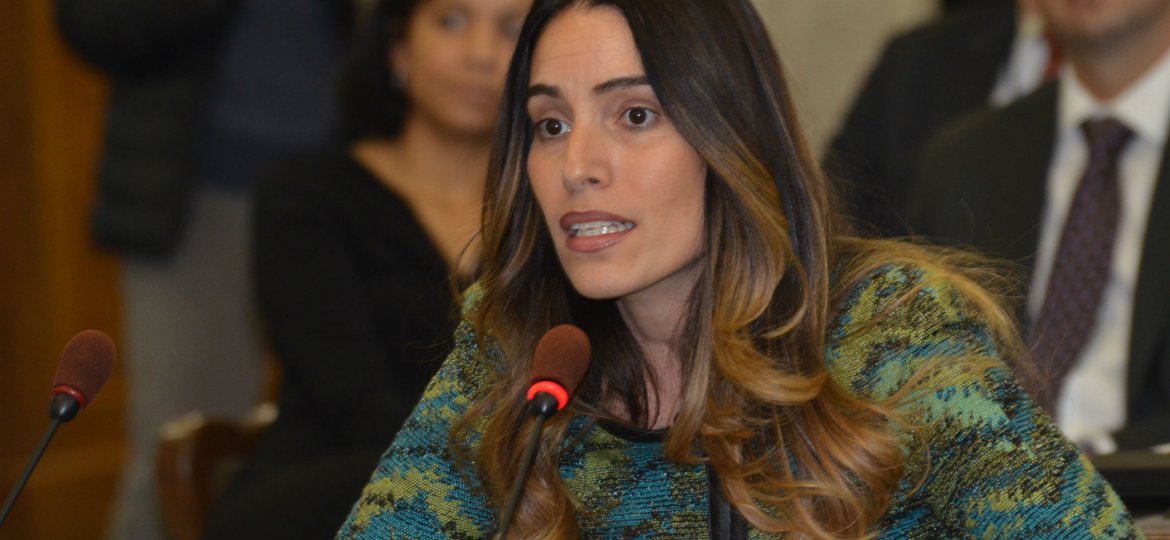
Murphy’s Education Commissioner on the Hot Seat at Legislative Hearing: ‘These Numbers Are Deplorable.’
April 18, 2023
NEW: Murphy Education Department Leaves Money and Students’ Needs on the Table
April 19, 2023Asbury Park Third-Graders Need More Than Phonics To Learn to Read: Here’s What We’re Missing
In the wake of Tapinto Newark’s damning analysis of Newark district students’ exceedingly low levels of literacy—just 3% of third-graders at Avon Elementary School are reading at grade level (see here for my take)—the emphasis is on the district’s failure to effectively teach reading by not mandating systemic phonics instruction.
Yet there’s another aspect that may account for these low scores, not just in Newark but in districts like Asbury Park where last spring’s standardized tests shows 0% of third-graders are literate: Core Knowledge.
This phrase has had a bad rap since E.D. Hirsch wrote a book in 1987 called “Cultural Literacy: What Every American Needs to Know,” arguing that “literacy is more than just the actual mechanics of reading. Literacy means understanding what you read and to understand what you read you need to have the appropriate background knowledge.” Critics, especially on the left, derided his thesis as elitist, Eurocentric, and racist. In 1997 the journal of the American Educational Research Association published this attack:
Hirsch minimizes a history of racial and gender bias as factors in differential educational and economic achievement. He dismisses complex theories of social class reproduction, and he demotes the importance of pedagogies that encourage the construction and negotiation of meaning across communities of difference. He insists that teachers and the texts are the proper bearers and students the proper recipients of meaning and refuses to understand the importance of meaning as a negotiated product in a multicultural society.
Sage, get off that stage!
Yet 35 years later, people are revisiting Hirsch’s theories and finding that he is right: students won’t master reading comprehension and critical thinking if they don’t have background knowledge of history, society, science, and culture.
In other words, phonemic awareness, center-stage with Emily Hanford’s “Sold a Story,” is one essential tool. Another is Core Knowledge.
In a great piece for the Fordham Foundation, Robert Pondiscio writes about the “misguided notions of social justice that make us reluctant to be prescriptive about what children should know” which results in educators “imposing a kind of illiteracy on those we think we’re championing.” (*Personal experience with this below.)
Research backs him up.
A new paper from Brown University’s Annenberg compared kindergarten students who were picked in a lottery for a charter network that focuses on Core Knowledge (the authors call it “General Knowledge”) with those who weren’t chosen. In one school, students, all low-income, eliminated achievement gaps at 3rd – 6th grade in Reading/English-LA, Science and Mathematics. Here’s Pondiscio’s summary:
Grissmer and his co-authors put this into sharp relief by noting that if we could collectively raise the reading scores of America’s fourth graders by the same amount as the Core Knowledge students in the study, the U.S. would rank among the top five countries on earth in reading achievement. At the one low-income school in the study, the gains were large enough to eliminate altogether the achievement gap associated with income. Eliminate it.
In addition, a new report from the National Council on Teacher Quality shows teachers who don’t have adequate mastery of content knowledge— ”knowledge about the natural and human world”—are inadequately prepared to help students “become strong readers and creative problem solvers.” Why? “Years of cognitive research has shown background knowledge in key subject areas, like science and social studies, is essential to reading comprehension, helping students not only understand the meaning of a text, but also interpret new words and ideas.” Yet only 3% of teacher prep programs require prospective elementary school teachers to take courses in social studies and science that would be relevant to their lessons.
For example, teachers-to-be can fulfill a general ed requirement by taking “American Government,” which is in every state’s learning standards, or “Sports History,” which is in not a single state’s learning standards.
In fact, NCTQ recommends that departments of education require prospective elementary teachers to take four subject-specific tests to ascertain their content knowledge. (Tell that to NJEA. Not bloody likely.)
Sure, phonics is essential. But, in addition, teacher preparation programs must ensure aspiring K-6 teachers have what it takes to incorporate core knowledge into their daily instruction.
(*This reminds me of a story.
Long long ago I was in a graduate program in upstate New York where a group of us were trained to teach in a program where low-income students who showed promise were admitted to the university for a “Transitional Year.” I taught Basic Writing to students, most of whom were from what was then called Spanish Harlem and had attended rotten New York City schools. They were all smart and capable but had never had the privilege of direct instruction in writing.
This was during an era when grad students in English departments stalked grimly through campus clutching books by Heidegger and Foucault (with the spines pointed out), dissertating on post-modern mantras like the “thingliness of the thing” and the corrosive impact of traditional narratives. This was also during the rise of “Ebonics,” a term that in 1997 the Oakland School Board recognized as the “primary language” of its majority African-American students, with its own grammar, cadence, and idioms.
Some of the grad students in my program—the loudest ones to be sure—insisted that teaching our students to write in Standard English was an assault on their culture, their communication styles, their very existence. I argued that we owed it to our students to give them a choice: if they wanted to work in certain professions, they’d need to code-switch and wouldn’t be able to do that if we made the choice for them.
The other students didn’t call themselves advocates for “social justice”—that’s a more recent term—but it’s how they thought of themselves, even though Pondiscio would say—I’m guessing here, haven’t asked him— that they were “misguided.” I’d go further and call them arrogant and self-indulgent. Actually did, but that’s another story.)





1 Comment
Hi Laura – Have you checked out the ELA scores at College Achieve Public Schools (CAPS) Greater Abury Park? The phenomenal staff and students have closed the achievement gap in numerous grades. Literacy is achievable with the right support.